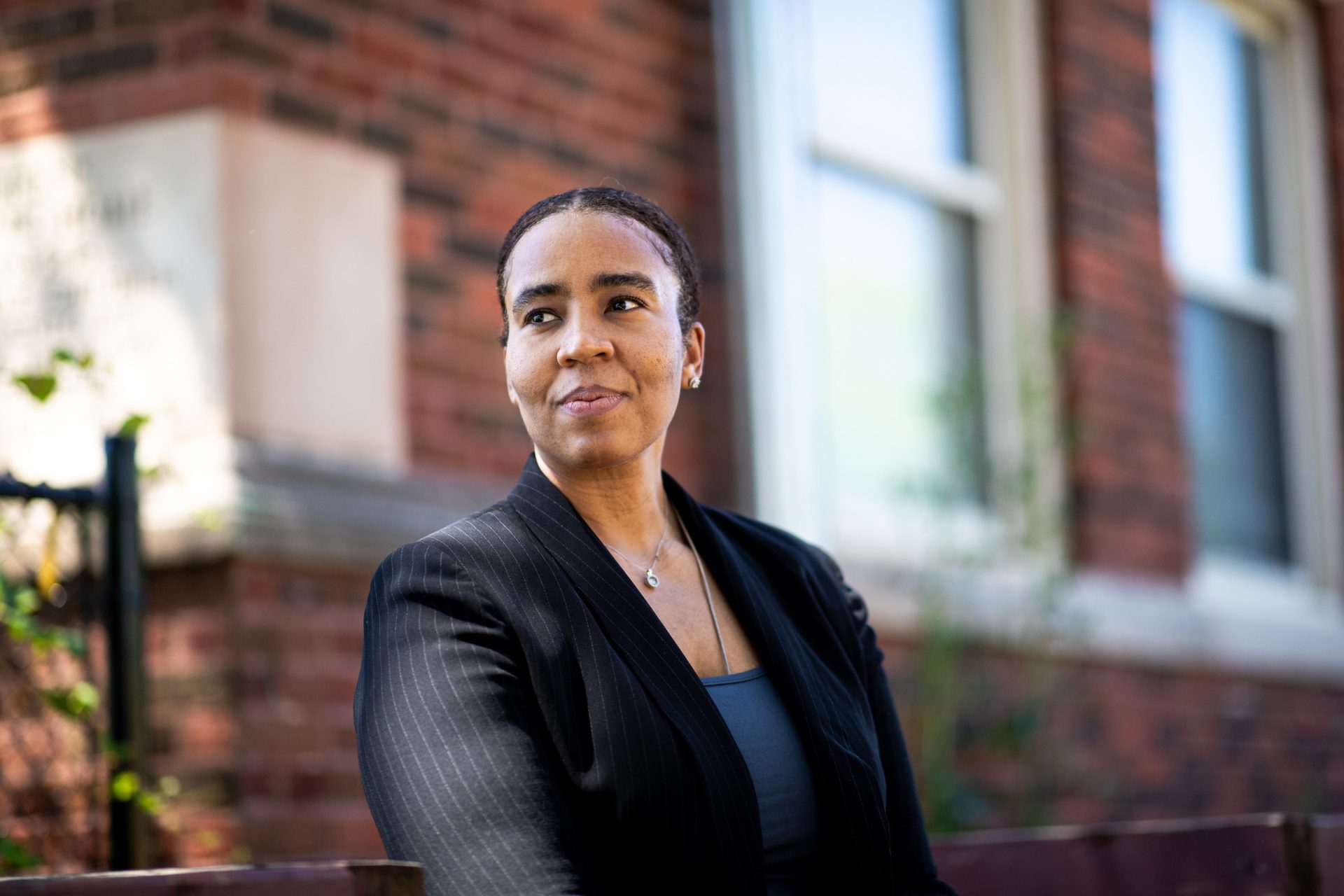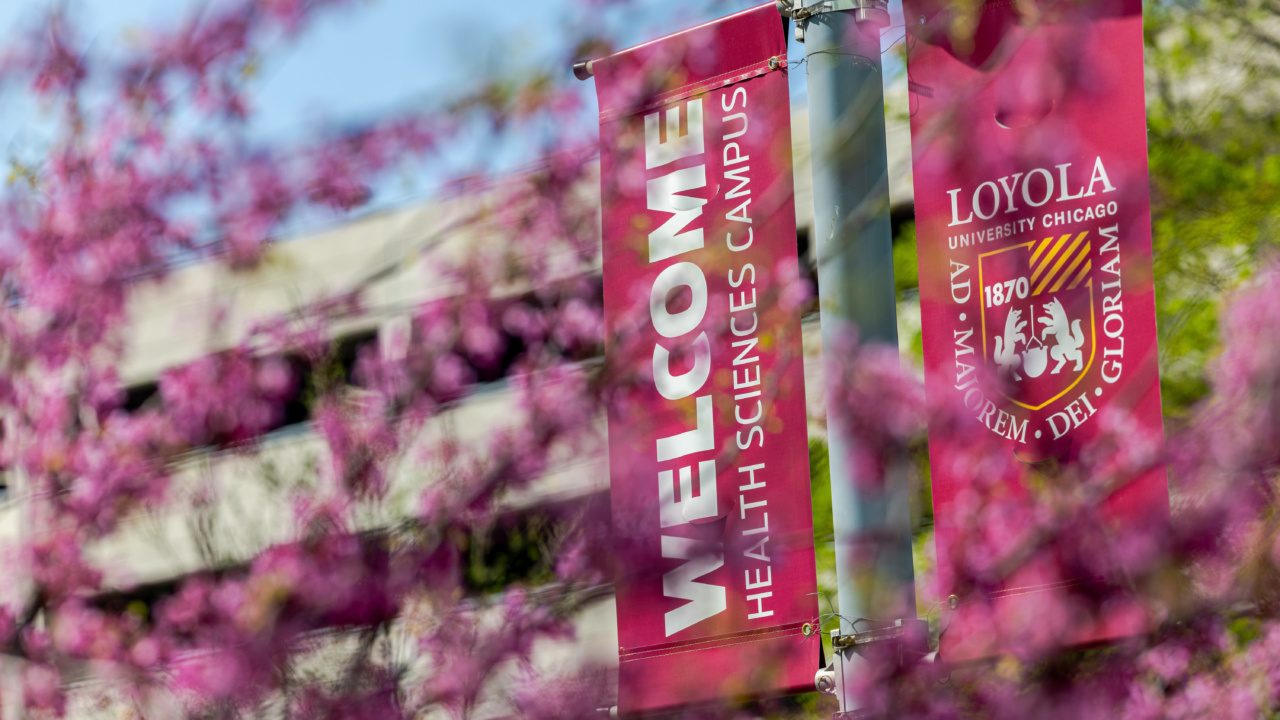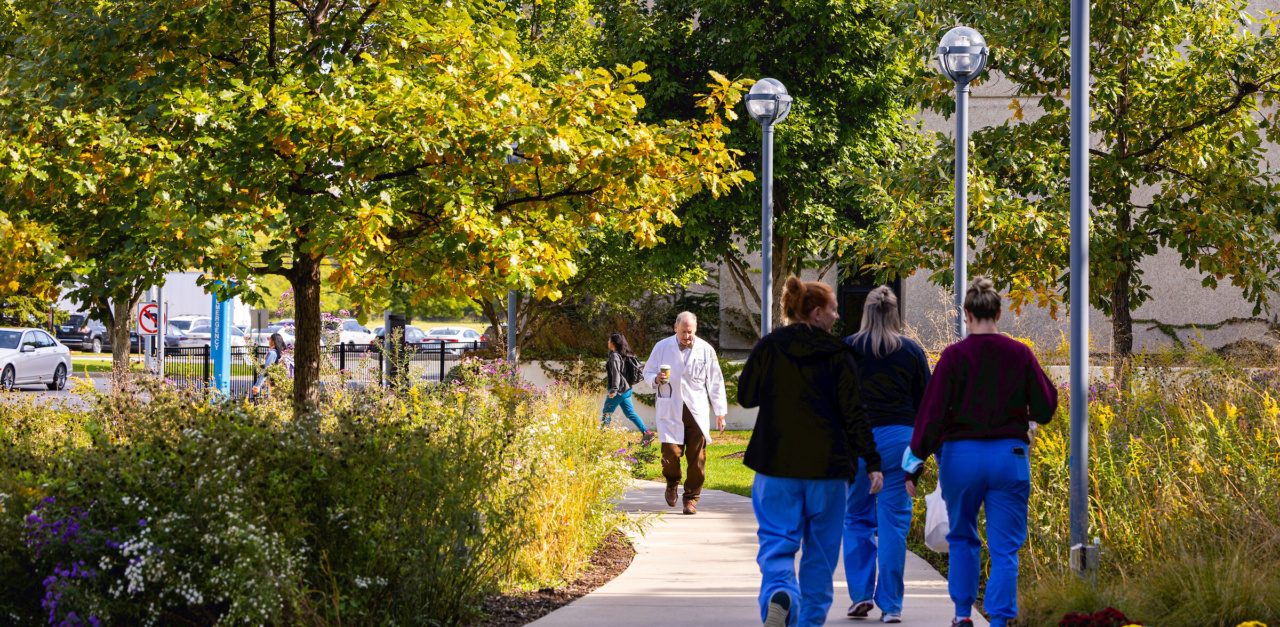
Loyola law clinic addresses health, legal needs with Health Justice Project
There are medical issues that a doctor is trained to address. If you break your arm, they will set it. If you need a new ticker, they can replace it. But what about issues a doctor can’t address but that hurt the body nonetheless? What if you lack stable housing but need electricity to power your medical equipment? What if you’re asthmatic but live in an apartment infested with rodents or mold? Who steps in to help? Where can one turn?
The Health Justice Project (HJP), a law clinic housed within Loyola University Chicago’s School of Law, is one such destination. For 11 years and counting, HJP has zeroed in on what experts call health-harming legal needs—a social or environmental problem that adversely affects a person’s health or access to care. These rear their heads disproportionately in vulnerable populations. (The vast majority of low-income Americans have more than one unmet and stress-inducing legal problem.) Legal action, then, can become its own form of preventive medicine.
“Health is something that is core to each of us,” says Maya Watson, a clinical teaching fellow with HJP. “You can’t really treat somebody’s back pain or insomnia if they are facing a looming eviction or if they’ve just had their water shut off.”
HJP’s model is that of the medical-legal partnership (MLP), a concept that emerged in the 1990s around AIDS activism and has become quietly influential in the intervening decades. At its core, MLPs integrate lawyers into the health care team and clinical setting. It’s the lawyer’s job to explain to patients exactly what legal, economic, and social support is available. In a lot of cases, a legal letter can ameliorate a situation where a doctor’s or social worker’s can’t. Conversely, a lawyers’ argument might carry more weight when it includes a doctor’s medical opinion. And interdisciplinary teams can detect patterns in patients’ needs that reveal opportunities for broader policy changes. The collaboration is reinforcing.
HJP partners with the Erie Family Health Center, a federally qualified system with 13 sites across Chicagoland, and Legal Aid Chicago. Erie identifies patients with legal needs and makes referrals to HJP. Legal Aid Chicago handles the patient intake. Loyola law students then act as lead counsel for any cases that HJP takes on, under the supervision of licensed attorneys like Watson, and pursue related policy research and advocacy.
Case types vary. Some are straightforward, like helping eligible people claim Social Security Disability Insurance benefits to which they’re entitled. Others are more tangled. Last year, a woman dealing with a severe respiratory ailment was referred to HJP. Her apartment was filled with carpeting so dank it aggravated her lungs. Her doctor had repeatedly helped her write letters to her landlord requesting they swap in hard-surface flooring, but to no avail. HJP jumped in, suggesting an accommodation request under the Americans with Disability Act. That notice got the landlord’s attention. Out went the fabric, and the woman’s health improved.
Olivia Alden, a law student in her third year, was hired as an HJP summer fellow in 2020. She applied after seeing the opening advertised in the School of Law announcements and found herself juggling half-a-dozen cases during her first month on the job. One family had a child with severe cognitive and physical disabilities; HJP ensured they received Medicare benefits and had transportation for doctor visits. Another centered on a housing-related pregnancy discrimination claim. Still learning her trade, the direct service work was occasionally intimidating to Alden, but always gratifying. “I see my role as a problem solver,” she says. “And as cheesy as it sounds, I find it an honor and a privilege to help people in this way.”
All data below courtesy of the National Center for Medical-Legal Partnerships.
25
number of MLPs currently operating in Illinois
25,000
number of patients served by medical-legal partnerships last year
58
number of law schools nationally that now run MLPs
While their structure and funding model varies, roughly 450 health organizations have established MLPs, most in the last decade. A growing number of law schools have also added medical-legal partnership clinics as part of their curriculum. Loyola has long operated on the cutting edge. “The concept is catching,” says Kate Mitchell, HJP’s director and a clinical professor in the School of Law.
“I’ve heard stories of med students who studied somewhere with a medical-legal partnership, and then when they go into practice and there’s no MLP, they ask where my lawyers are at?”
Mitchell—now in her fourth year at Loyola—has been laying the groundwork for a HJP expansion for some time. The MLP model made too much sense, and too many Chicagoland patients could stand to benefit. Colleagues at the Health Sciences Campus were receptive; many of the clients they treat live in Chicago’s Austin neighborhood or in near western suburbs like Maywood, communities marked by structural racism and health disparities. Towards the end of 2019, Mitchell’s planning intensified. A health care provider was soon identified—Loyola Family Practice Center on Roosevelt Road, home to Loyolans like Dr. Aaron Michelfelder, the Stritch School of Medicine’s chair and professor of family medicine. Decisions were then reached about funding and the client referral process. Watson was hired in September 2020 to run the second clinic, which opened for business formally and virtually in February.
The COVID-19 pandemic—which swept through Black and brown homes in the United States unequally—reinforced the acuteness of the need. This past summer and fall, HJP staffers screened community members at mobile testing sites organized by the COVID Equity Response Collaborative: Loyola (CERCL), helping those infected understand exactly what support was available to them. Folks weren’t always aware that what they were experiencing actually constituted a legal problem. And even when they did, paying for legal representation seemed untenable.
Traditionally, an attorney working for an MLP is stationed right inside the cooperating clinic or hospital, creating what Watson calls a “one-stop shop.” For the time being, Watson and her small team—a social work intern and an administrative coordinator—are holding virtual office hours over Zoom. (They plan to be on site sometime in 2021.) They’re also hosting monthly introductory trainings with Loyola’s health care providers on topics like housing and income supports.
Working closely with doctors and nurses is a new experience for Watson; compared with lawyers, they tend to be more succinct in meetings and “wake up at insane, early hours of the morning.” But they’ve proven excellent partners, and compassionate towards those in their care.
She’s appreciated getting to know Maywood, too, a city she compares favorably with her native Detroit. “I started working in Maywood in September through CERCL,” Watson says. “I immediately fell in love with it. It seems like my second home. The people there have so much spirit and heart. And they deserve the best.”
Over time, Watson wants to build out the new MLP’s reach, joining forces with additional west suburban facilities and recruiting more Loyola students. As the broader MLP movement continues to mature, she expects to see larger participation incentives introduced for doctors. If we start to think of whole communities as a patient, we all stand to benefit.


